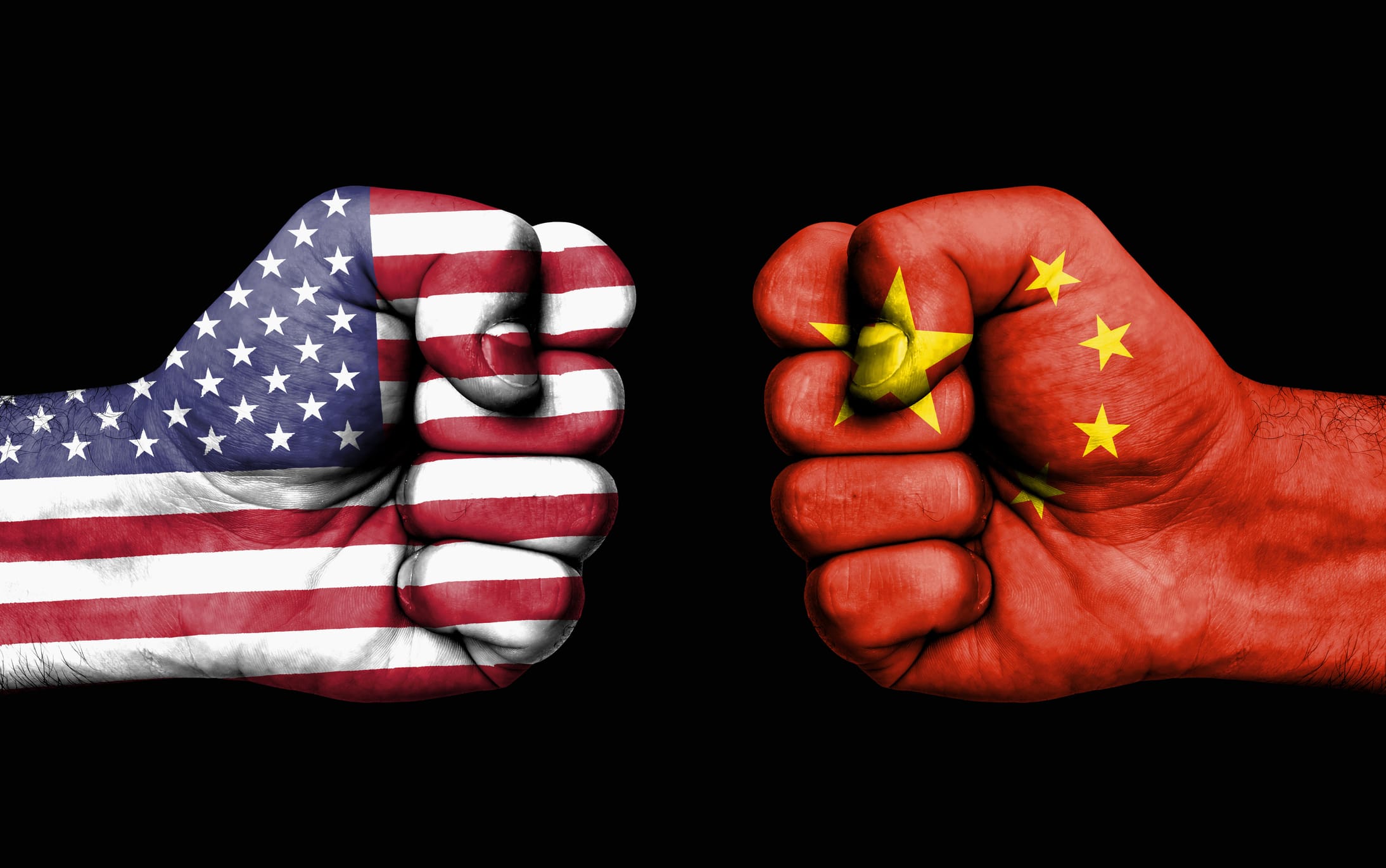China's Economy: Assessing The Risks Of Rising Tariffs On Exports

Table of Contents
Impact on Chinese Export Industries
Rising tariffs pose a direct threat to numerous Chinese export industries, potentially causing significant economic disruption. The vulnerability of key sectors needs careful consideration.
Manufacturing Sector Vulnerability
China's manufacturing sector, a cornerstone of its GDP, is particularly vulnerable to rising tariffs. The increased costs associated with these tariffs translate directly into reduced competitiveness and potential economic hardship.
- Reduced global competitiveness: Higher prices on Chinese-manufactured goods make them less attractive to international buyers compared to products from countries not subject to the same tariffs. This can lead to a loss of market share.
- Decreased export volume: Lower global demand due to higher prices inevitably leads to reduced production levels in Chinese factories. This translates to decreased revenue and, potentially, significant job losses across the manufacturing sector.
- Supply chain disruptions: Tariffs can force multinational corporations to reconsider their sourcing strategies. Companies may choose to shift production to other countries with lower tariffs, further impacting Chinese manufacturers and potentially causing long-term damage to established supply chains. This effect is amplified for complex products requiring multiple suppliers.
Technology Sector Challenges
China's ambition to become a global leader in technology faces significant challenges from rising tariffs. The high-tech sector is especially dependent on international trade and collaboration, making it particularly susceptible to trade restrictions.
- Increased costs for tech components: Many high-tech products rely on imported components. Tariffs on these components directly increase production costs, reducing profit margins and hindering the competitiveness of Chinese tech firms.
- Slowdown in technological innovation: The uncertainty created by trade disputes and the increased costs associated with tariffs can reduce investment in research and development. This slowdown in innovation can hamper China's technological advancement and long-term global competitiveness.
- Impact on global market share: Higher prices due to tariffs make Chinese tech products less attractive globally, potentially losing market share to competitors from other countries. This impacts both the consumer electronics and industrial technology sectors.
Domestic Economic Consequences
The impact of rising tariffs on China's export industries extends far beyond the affected sectors, leading to significant domestic economic consequences.
GDP Growth Slowdown
Reduced exports directly translate to slower GDP growth, potentially triggering a chain reaction of negative economic effects.
- Decreased consumer spending: Job losses in export-oriented industries, coupled with economic uncertainty, can lead to reduced consumer confidence and decreased consumer spending, further weakening economic activity.
- Government response and fiscal policy: The Chinese government may need to intervene with counter-cyclical fiscal policies, such as increased government spending or tax cuts, to stimulate the economy. This can, however, put pressure on public finances.
- Potential for social unrest: Widespread job losses and economic hardship can fuel social unrest and political instability, creating a significant challenge for the government.
Inflationary Pressures
Reduced export revenues and increased import costs can put upward pressure on prices for consumers, leading to inflation.
- Impact on purchasing power: Higher prices for goods and services erode consumer purchasing power, impacting their ability to purchase non-essential items. This decreases overall demand.
- Government intervention: The government may need to intervene to control inflation through monetary policies, such as raising interest rates. However, this can also slow economic growth.
- Long-term economic implications: Persistent inflation creates economic uncertainty, discouraging investment and further slowing economic growth. This can create a vicious cycle of economic downturn.
Geopolitical Ramifications
The economic effects of rising tariffs extend beyond China's borders, creating significant geopolitical ramifications.
Strained International Relations
Trade disputes fueled by tariffs can significantly strain relations between China and its trading partners.
- Retaliatory measures: Other countries may impose retaliatory tariffs on Chinese imports, escalating trade wars and harming global trade.
- Damage to global trade: Trade wars disrupt global supply chains and harm international cooperation, leading to uncertainty and decreased global trade volume.
- Increased geopolitical uncertainty: Unpredictable trade policies increase uncertainty for businesses and investors globally, potentially leading to decreased investment and economic stagnation.
Shifting Global Trade Dynamics
Rising tariffs may accelerate the diversification of global supply chains, potentially reducing China's role as the "world's factory."
- Reshoring and nearshoring: Companies may choose to relocate manufacturing facilities closer to their home markets or to other countries with more favorable trade conditions.
- Rise of alternative manufacturing hubs: Countries like Vietnam, India, and Mexico could benefit from the shift in global manufacturing, potentially becoming new centers of production.
- Long-term impact on China's global economic position: A reduced manufacturing base could alter China's global economic influence and its position as a major player in the global economy.
Conclusion
Rising tariffs pose significant risks to China's economy, with potential impacts ranging from export industry disruption to domestic economic instability and strained international relations. The manufacturing sector, a cornerstone of China's economy, is particularly vulnerable. Understanding these risks is crucial for investors, policymakers, and businesses. To effectively navigate this complex landscape, continuous monitoring of trade policies and the development of proactive adaptation strategies are essential for mitigating the negative effects of rising tariffs on China's economy. Careful analysis of China’s economic responses to tariff increases is vital for understanding the future trajectory of this critical global economy.

Featured Posts
-
 Google Faces Further Scrutiny Doj Returns To Court
Apr 22, 2025
Google Faces Further Scrutiny Doj Returns To Court
Apr 22, 2025 -
 How Chainalysis Acquisition Of Alterya Will Shape The Future Of Blockchain
Apr 22, 2025
How Chainalysis Acquisition Of Alterya Will Shape The Future Of Blockchain
Apr 22, 2025 -
 Pope Francis His Life Legacy And Enduring Call For Compassion
Apr 22, 2025
Pope Francis His Life Legacy And Enduring Call For Compassion
Apr 22, 2025 -
 New Signal Chat Messages Implicate Hegseth Amidst Pentagon Chaos Accusations
Apr 22, 2025
New Signal Chat Messages Implicate Hegseth Amidst Pentagon Chaos Accusations
Apr 22, 2025 -
 Is A New Cold War Between The U S And China Inevitable
Apr 22, 2025
Is A New Cold War Between The U S And China Inevitable
Apr 22, 2025
